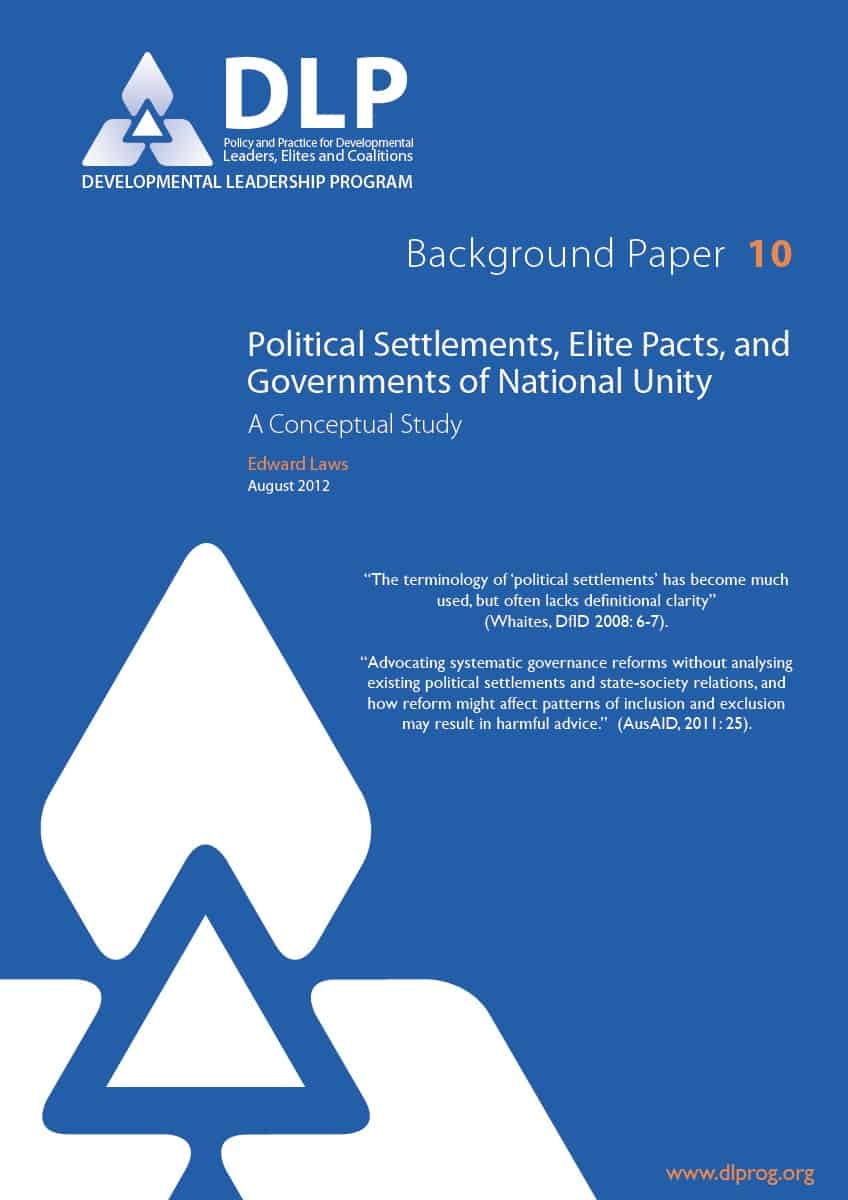A growing body of recent scholarship puts political settlements at the centre of the development process. The political settlements approach focuses on the formal and informal negotiations, bargains, pacts and agreements between elite actors, as crucial drivers of the locally effective institutions and policies that promote or frustrate the achievement of sustainable growth, political stability and socially inclusive development. However, alongside a lack of detailed empirical case studies, the usefulness of the framework as it stands is hampered by: a lack of consensus over how to define and understand the key concepts and, a tendency in the literature to conflate key terms, i.e. to treat political settlements, elite pacts/bargains and peace agreements as interchangeable. It is also unclear how governments of national unity should be defined and understood in relation to these other concepts.
This paper surveys and clarifies the conceptual field by addressing the questions: How should political settlements be defined and understood? How should elite pacts and governments of national unity (GNUs) be defined and understood?










